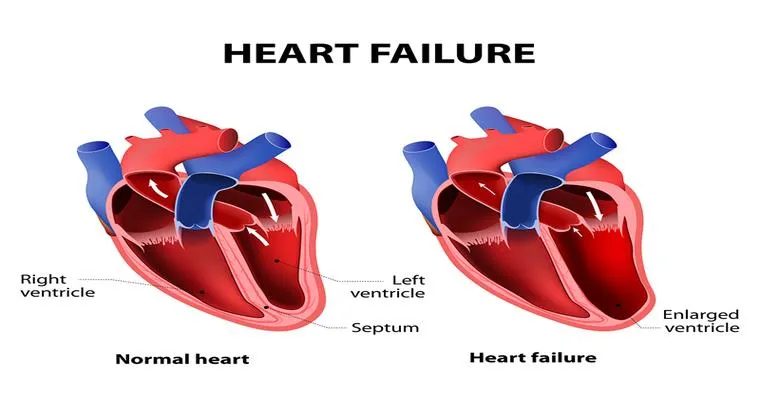"Heart failure" is a serious medical condition that affects millions of people worldwide. It occurs when the heart is unable to pump blood effectively, leading to inadequate blood flow to meet the body's needs. Key factors contributing to "heart failure" include "coronary artery disease", high blood pressure, and previous heart attacks. Recognizing the symptoms and understanding treatment options are crucial for managing this condition effectively.
What is Heart Failure?
At its core, "heart failure" means that the heart is not functioning as it should. This can manifest as either a reduced ability of the heart to pump blood (systolic heart failure) or a difficulty in filling the heart with blood (diastolic heart failure). The severity of "heart failure" can vary from mild to severe, and it can significantly impact a person's quality of life.
Causes of Heart Failure
Several underlying conditions can lead to "heart failure". Here are some of the most common causes:
1. "Coronary artery disease": This is the most prevalent cause of "heart failure" and occurs when the arteries supplying blood to the heart become narrowed or blocked.
2. "High blood pressure": Chronic high blood pressure can lead to the heart working harder than normal, eventually causing it to weaken.
3. "Heart attacks": Damage from a heart attack can impair the heart's ability to function properly.
4. "Cardiomyopathy": This disease of the heart muscle can be caused by various factors, including alcohol abuse, infections, or inherited conditions.
5. "Other conditions": Diseases such as diabetes, thyroid disorders, and chronic lung diseases can also contribute to the development of "heart failure".
Symptoms of Heart Failure
Individuals with "heart failure" may experience a range of symptoms that can vary in intensity. Common symptoms include:
Shortness of breath, especially during physical activity or when lying flat
Fatigue and weakness
Swelling in the legs, ankles, or abdomen due to fluid retention
Rapid or irregular heartbeat
Persistent cough or wheezing, sometimes producing white or pink mucus
If you experience any of these symptoms, it is essential to consult a healthcare professional for an accurate diagnosis and appropriate treatment.
Diagnosing Heart Failure
To diagnose "heart failure", healthcare providers may conduct a thorough physical examination, review medical history, and order various tests. These tests may include:
Blood tests to check for markers indicating heart failure
Chest X-rays to look for fluid in the lungs
Echocardiogram to assess heart function and structure
Electrocardiogram (ECG) to measure the electrical activity of the heart
Treatment Options for Heart Failure
While there is no cure for "heart failure", various treatment options can help manage the symptoms and improve quality of life. These may include:
1. "Medications": Commonly prescribed medications include ACE inhibitors, beta-blockers, diuretics, and aldosterone antagonists. These drugs can help improve heart function, reduce fluid buildup, and lower blood pressure.
2. "Lifestyle changes": Patients are often advised to adopt a heart-healthy diet, exercise regularly, maintain a healthy weight, and quit smoking to improve overall heart health.
3. "Devices": In some cases, medical devices such as implantable cardioverter-defibrillators (ICDs) or biventricular pacemakers may be recommended to help manage heart rhythm and improve pumping efficiency.
4. "Surgery": Surgical options, including heart valve repair or replacement, coronary artery bypass grafting, or even heart transplantation, may be considered for severe cases of "heart failure".
Conclusion
Understanding "heart failure" is essential for both patients and their families. Recognizing the causes, symptoms, and treatment options can empower individuals to seek timely medical intervention and make informed lifestyle choices. If you or someone you know is experiencing symptoms related to "heart failure", do not hesitate to reach out to a healthcare provider for guidance and support. Early intervention can make a significant difference in managing this condition and improving overall heart health.





